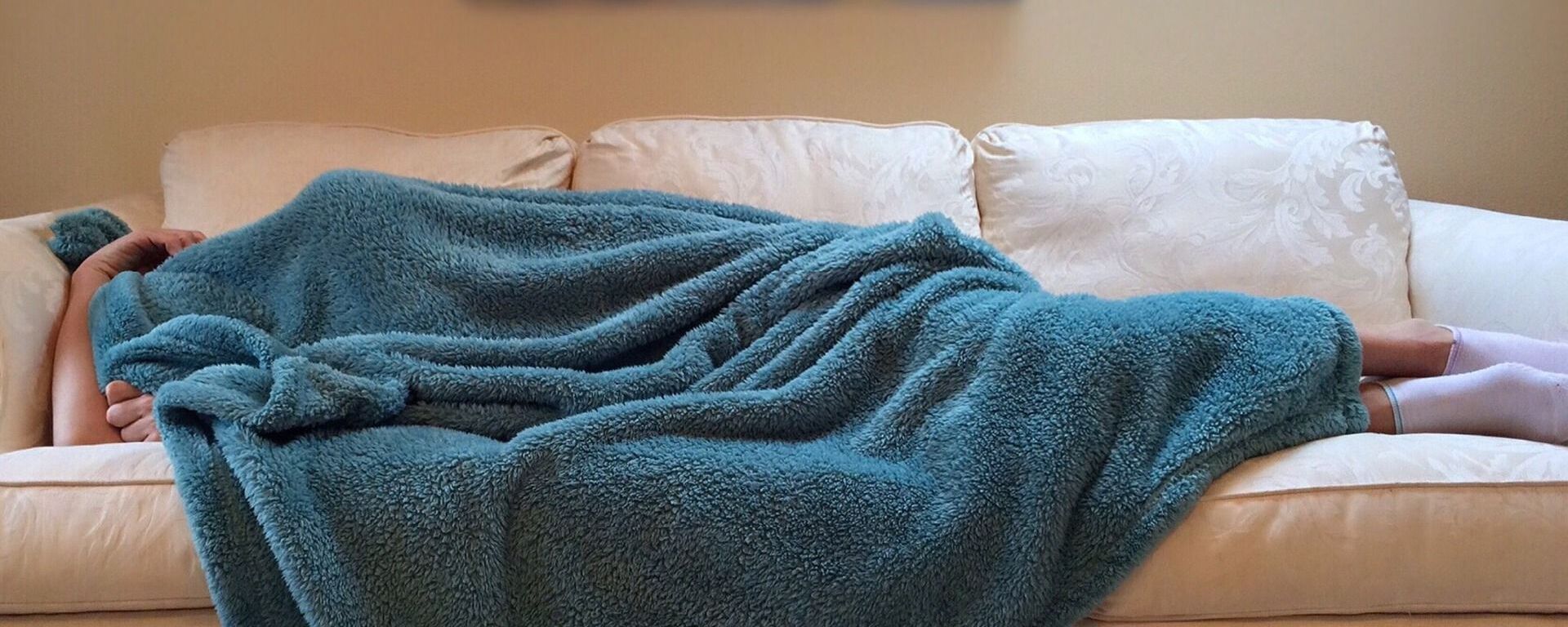https://sputnikglobe.com/20221028/paging-mr-sandman-scientists-manipulated-emotions-in-dreams-to-ease-nightmares-1102785473.html
Paging Mr. Sandman: Scientists Manipulated Emotions in Dreams to Ease Nightmares
Paging Mr. Sandman: Scientists Manipulated Emotions in Dreams to Ease Nightmares
Sputnik International
Frequent or recurring nightmares, if left unchecked, can not only negatively impact sleep but also individuals’ daily lives. The method researchers used could... 28.10.2022, Sputnik International
2022-10-28T03:02+0000
2022-10-28T03:02+0000
2022-10-28T03:01+0000
science & tech
nightmare
study
sleep
emotions
manipulation
https://cdn1.img.sputnikglobe.com/img/105692/94/1056929444_0:188:1920:1268_1920x0_80_0_0_7179f95dd9669012b9f24ccd46b35c35.jpg
Researchers at the University of Geneva in Switzerland have adapted targeted memory reactivation (TMR), which has the potential to influence the course of memory formation through the application of cues during sleep, to help people manage their debilitating nightmares, according to a recently peer-reviewed study.The study builds off of image rehearsal therapy (IRT), a cognitive behavioral technique often employed in the service of reducing the number and intensity of nightmares that weakens nightmares by giving them context through conversation.Patients are asked to think back on their nightmares and edit them to imagine positive endings to them. The idea behind the practice is to let the mental exercises, which can rewrite dream narratives, bleed into the patients’ dream worlds – resulting in higher-quality sleep unfettered by the stress that normally accompanies nightmares.However, much of the research suggests that as little as 30% of people who try IRT respond positively to it, and researchers learned that the odds of therapeutic success were increased when IRT was paired with TMR.“There is a relationship between the types of emotions experienced in dreams and our emotional well-being,” says senior author Lampros Perogamvros, a psychiatrist at the Sleep Laboratory of the Geneva University Hospitals.Perogamvros and his colleagues looked at 36 different patients undergoing IRT every day. Half of them served as the control group, with the other half required to create an association between the positive revisions of their nightmares and a sound played during the mental exercise. These patients were also given a wireless headband to wear that could send them this sound at night during REM sleep – when dreams are most vivid. The initial study period lasted for two weeks.According to the study, both groups experienced a decrease in nightmares, but the group that received TMR in addition to IRT therapy had a marked increase in nightmares three months later, suggesting that the combined therapy could move on to larger test trials with more varied patients in order to determine its general efficacy.“We were positively surprised by how well the participants respected and tolerated the study procedures, for example performing imagery rehearsal therapy every day and wearing the sleep headband during the night,” says Perogamvros.The results not only have positive implications for patients suffering from recurrent nightmares, but for patients experiencing other psychiatric disorders too.The study, called “Enhancing imagery rehearsal therapy for nightmares with targeted memory reactivation,” was published in the Oct. 27 issue of Current Biology.
https://sputnikglobe.com/20220921/recurrent-nightmares-you-may-be-at-higher-risk-for-dementia-study-finds-1101064719.html
Sputnik International
feedback@sputniknews.com
+74956456601
MIA „Rossiya Segodnya“
2022
News
en_EN
Sputnik International
feedback@sputniknews.com
+74956456601
MIA „Rossiya Segodnya“
Sputnik International
feedback@sputniknews.com
+74956456601
MIA „Rossiya Segodnya“
science & tech, nightmare, study, sleep, emotions, manipulation
science & tech, nightmare, study, sleep, emotions, manipulation
Paging Mr. Sandman: Scientists Manipulated Emotions in Dreams to Ease Nightmares
Frequent or recurring nightmares, if left unchecked, can not only negatively impact sleep but also individuals’ daily lives. The method researchers used could boost the effectiveness of an already-existing therapeutic treatment for sufferers of chronic nightmares, who often have comorbidities such as post-traumatic stress disorder.
Researchers at the University of Geneva in Switzerland have adapted targeted memory reactivation (TMR), which has the potential to influence the course of memory formation through the application of cues during sleep, to help people manage their debilitating nightmares, according to a recently peer-reviewed study.
The
study builds off of image rehearsal therapy (IRT), a cognitive behavioral technique often employed in the service of reducing the number and intensity of nightmares that weakens nightmares by giving them context through conversation.
Patients are asked to think back on their nightmares and edit them to imagine positive endings to them. The idea behind the practice is to let the mental exercises, which can rewrite dream narratives, bleed into the patients’ dream worlds – resulting in higher-quality sleep unfettered by the stress that normally accompanies nightmares.
However, much of the research suggests that as little as 30% of people who try IRT respond positively to it, and researchers learned that the odds of therapeutic success were increased when IRT was paired with TMR.
“There is a relationship between the types of emotions experienced in dreams and our emotional well-being,” says senior author Lampros Perogamvros, a psychiatrist at the Sleep Laboratory of the Geneva University Hospitals.
“Based on this observation, we had the idea that we could help people by manipulating emotions in their dreams. In this study, we show that we can reduce the number of emotionally very strong and very negative dreams in patients suffering from nightmares.”

21 September 2022, 22:32 GMT
Perogamvros and his colleagues looked at 36 different patients undergoing IRT every day. Half of them served as the control group, with the other half required to create an association between the positive revisions of their nightmares and a sound played during the mental exercise. These patients were also given a wireless headband to wear that could send them this sound at night during REM sleep – when dreams are most vivid. The initial study period lasted for two weeks.
According to the study, both groups experienced a decrease in nightmares, but the group that received TMR in addition to IRT therapy had a marked increase in nightmares three months later, suggesting that the combined therapy could move on to larger test trials with more varied patients in order to determine its general efficacy.
“We were positively surprised by how well the participants respected and tolerated the study procedures, for example performing imagery rehearsal therapy every day and wearing the sleep headband during the night,”
says Perogamvros.
“We observed a fast decrease of nightmares, together with dreams becoming emotionally more positive. For us, researchers and clinicians, these findings are very promising both for the study of emotional processing during sleep and for the development of new therapies.”
The results not only have positive implications for patients suffering from recurrent nightmares, but for patients experiencing other psychiatric disorders too.
The study, called “Enhancing imagery rehearsal therapy for nightmares with targeted memory reactivation,” was published in the Oct. 27 issue of Current Biology.


